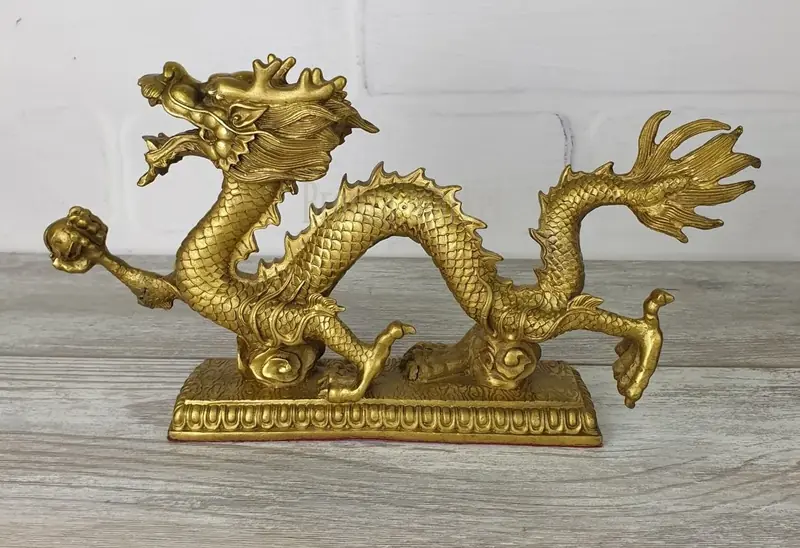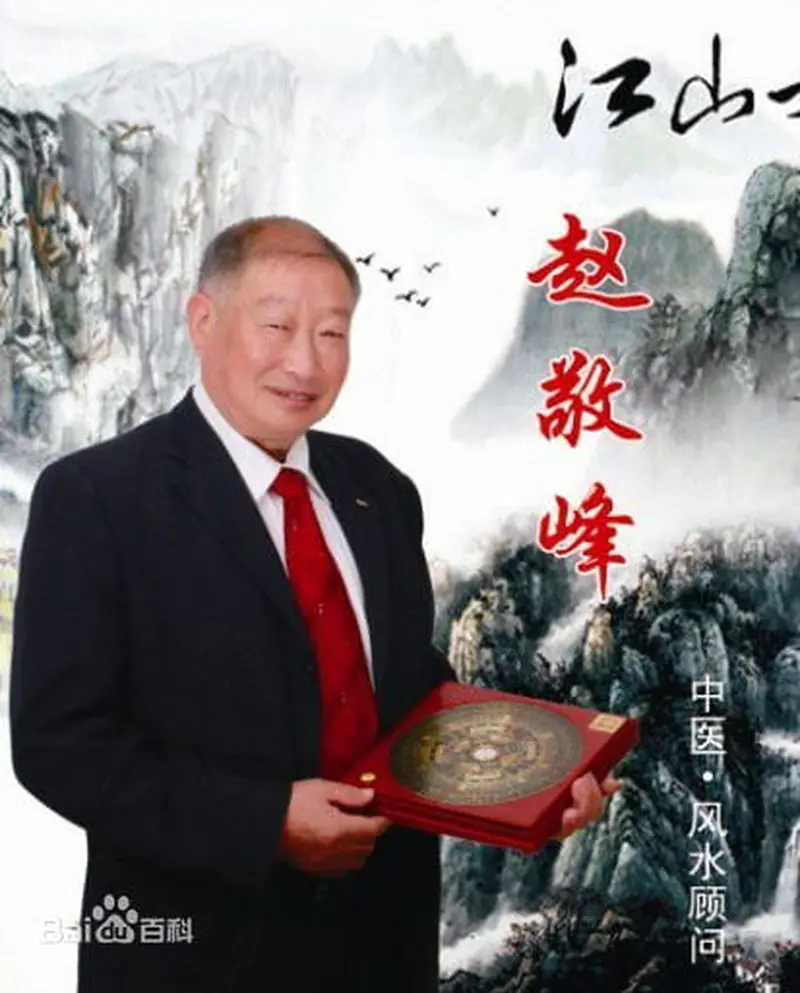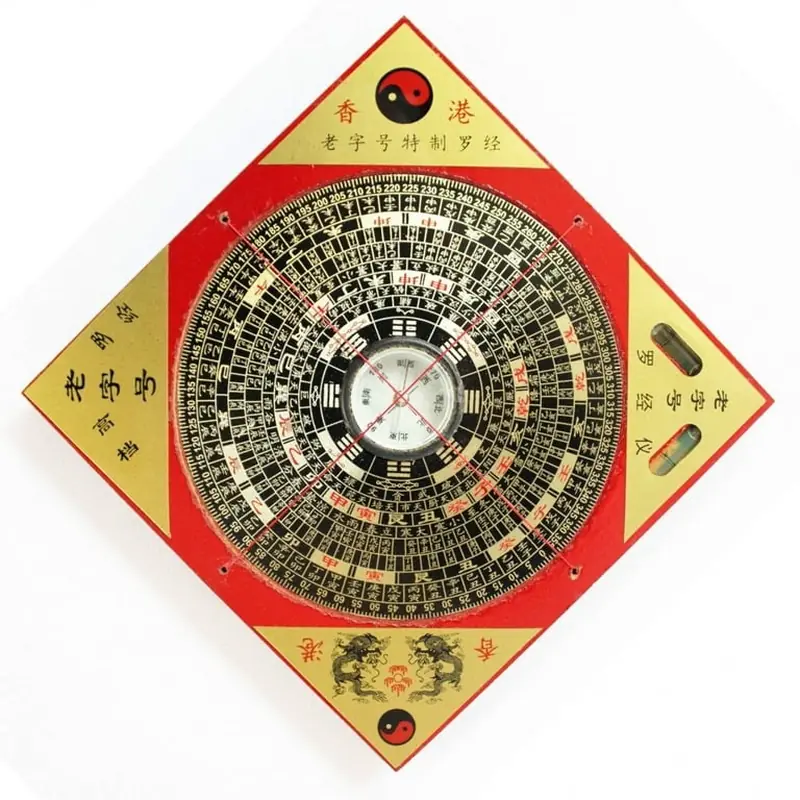
The Chinese perspective on the laws of fate and events embodies a harmony of energies that serves as a remedy for troubles and stress. Why is it important to “awaken the Dragon,” and how does proper spatial organization help us navigate extreme situations? April 8 marks Feng Shui Day, a Daoist practice centered on the symbolic arrangement of space.
What is Feng Shui?
The term for the teaching about the harmony between humans and the universe translates from Chinese as “wind and water.” At the core of this theory of harmonious space are the teachings of the Chinese master Yang Yi, who proposed a method for “finding the Dragon where it is hardest to detect.” In his three books, the author reflected on the idea that for a prosperous household, one needs the “breath of the Dragon,” describing places where this energy becomes palpable. For a Western mindset, concepts like “the art of awakening the Dragon” and “the rules of surprising the Dragon” might seem like an abstract collection of words, were it not for a person who simplified the understanding of this teaching “for the layperson.”

This teacher, in 1986, was American Thomas Lin Yu, an ethnic Chinese who distilled the essence of Yang Yi’s theory for his students into symbolic and esoteric interpretations. The Feng Shui instructor divided space into zones with different purposes, suggesting that placing certain objects in sectors related to career, wealth, love, children, and so on allows individuals to activate the necessary energy. The true essence of the teaching differs from its simplified interpretation. In reality, Feng Shui does not use the concepts of “family,” “wealth,” “love,” or “health” zones. The energy of each home is unique and must be calculated individually, based on the relationship between space (determined by a compass) and time (measured using a calendar).

Experts emphasize that the “working material” of Feng Shui is exclusively the flow of chi; this fundamental category in Chinese culture and medicine is defined as “life force,” “energy,” “breath,” “air,” “pneuma,” or “ether.” According to Chinese philosophy, this energy is distributed in space according to the laws of the universe. The goal of Feng Shui is to seek favorable chi flows and utilize this energy for the benefit of individuals. Practitioners of the teaching believe that Feng Shui can help determine the optimal location for a home or burial site.
“Heavenly Happiness”
The concept of Feng Shui acknowledges the penetration of chi flows through plots, buildings, and rooms. Like the wind, this energy permeates all objects in its path: nature, humans, and things. Since it is independent of human influence, it is referred to as “heavenly fate” or “heavenly happiness.” According to Daoist philosophy, “heavenly happiness” is something a person or place receives at birth. “Human happiness” consists of conscious actions: ideas, deeds, character, education, and merits. “Earthly happiness,” according to Feng Shui principles, refers to earthly energy flows that affect a person’s fate: health, relationships, and various events.
For centuries, the Chinese have believed in the integrity of the universe, and Feng Shui is seen as a science of existing in harmony with the natural chakra. It is believed that this chakra radiates through the body via nine channels. By harnessing the positive energy of nature and neutralizing the negative, Feng Shui aims to improve health and relationships with others. To harmonize fate and achieve happiness, Feng Shui rules recommend avoiding unattractive furniture, long corridors, and non-functional corners, as these areas create stagnant chi. The Feng Shui of an apartment or house involves the correct placement of doors, windows, furniture, and necessary items: they should not fall into an unharmonious flow.

For instance, correcting negative energy is done by addressing the absence of activity. It is impossible to completely keep harmful non-material energy out of one’s home. However, one can minimize the strength of its negative influence by changing the locations of active life areas. A temporary energy imbalance (“earthly misfortune”) can be corrected on-site using the positive energy of a person present in that space, provided that their positive energy is sufficient to alter the environment. If an individual lacks such energy internally, it can be drawn from external sources: spiritual or physical practices (prayers, acupuncture, or acupressure) and even from resourceful individuals.
Feng Shui Rules
Turning to amulets for this purpose is an attempt to personify energy through objects: icons, crosses, rosaries, paintings, or Buddha figurines. Traditionally, people bring beneficial energy into their homes through amulets, but classical Feng Shui has nothing to do with souvenir figurines, talismans, and amulets—associating folklore attributes with the teaching would be misleading, experts clarify. The Chinese use a non-personified system of natural elements, distinguishing the energy of the five elements: fire, earth, wood, water, and metal. Classical Feng Shui comprises elements from various sciences: philosophy, astronomy, astrology, mathematics, and physics.
At the end of the 19th and beginning of the 20th centuries, the two oldest schools of Feng Shui merged completely: the so-called Form School (“Xin Fa”) and the Compass School (“Li Zuo Pai”). Specializing in the placement of buildings and graves, the first seeks the “Dragon’s lair,” studying the terrain and landscape. The second analyzes time (heavenly forces) and space (earthly forces) through complex calculations and symbols from the Book of Changes, trigrams, and hexagrams. The principle here is to align one’s type of chi with all compass directions (eight energies).

In the Middle Ages, the Chinese kept Feng Shui rules under strict secrecy. This knowledge was accessible only to the Chinese elite—aristocrats and rulers. To maintain power over those without access to secret knowledge, emperors paid Feng Shui experts handsomely for their advice while punishing those who disclosed confidential information. Today, many Asian countries live by Feng Shui principles. In their quest for success, not only individual citizens of Singapore, Hong Kong, or Taiwan seek the secrets of harmony from masters, but even respected corporations do. Feng Shui is beginning to revive after official persecutions, even in communist China.
Feng Shui of the Home
In homes and offices, furniture is increasingly arranged according to the laws of energy exchange. According to Feng Shui principles, space is organized to stimulate the flow of positive energy and eliminate negative energy.
Living Room
In the center of the main room, where the energy of all family members and guests converges, Feng Shui typically places a table without corners (round or oval), surrounded by a sofa, chairs, or stools. Arranging furniture against the walls in parallel directions is considered incorrect: one should not place a television against one wall and a sofa against another. A special stand or wall-mounted device should be provided for the television, but not next to a window or door.

Bedroom
In the sleeping room, only essential furniture should be present, with particular attention given to the bed. It should definitely be on legs. The space under the bed and on both sides should be kept clear. The bed should not face the door; instead, the person lying down should be able to see the door. The bed should not be reflected in a mirror, as this can drain energy from the person. Computers, televisions, houseplants, and bright images on the walls are inappropriate in the bedroom.

Kitchen
According to Feng Shui rules, the dining table should be round or oval, and the sink should not be next to the stove: fire and water are incompatible energies, constantly opposing each other. The stove is placed in the southeastern segment of the room, while the sink is located in the northeastern sector. The refrigerator should not be placed next to the stove; its place is in the kitchen, not in the hallway.

Children’s Room
According to general Feng Shui recommendations, this room should not be near the entrance to the home, adjacent to a bathroom, pantry, or kitchen. If it is not possible to follow all the rules, the door to the children’s room should be kept closed. The children’s room should be located in the eastern part of the apartment. The sleeping area is best organized near a window. Feng Shui rules do not favor bunk beds. The play area should be visually separated (using furniture or wall colors). The desk should be placed near the entrance to the room, but not directly opposite the door.

Feng Shui is Creativity
The main rules of Feng Shui for an apartment include:
- the smaller the size of the room, the fewer pieces of furniture it should contain;
- furniture placement should start with large items: beds and sofas;
- do not place mirrors directly opposite the entrance;
- place a mirror in the hallway near the door;
- all furniture should be on legs, keeping it 15-20 cm off the floor;
- tall cabinets should be placed along the walls;
- sharp corners should be covered by other furniture, but not by sleeping or sitting areas;
- items that are not used for a long time should be removed or stored away;
- there should be no shelves or beams above sleeping or sitting areas;
- maintain order in the home (especially cleanliness is important for windows).
And while there is still no scientific evidence supporting the mystical concepts of Feng Shui, and the scientific community considers this teaching a pseudoscience, many people enjoy this imaginative approach as it allows for a creative way to arrange their surroundings.
By striving for harmony through the accumulation of favorable energy sheng-chi (“the breath of the satisfied Dragon”), we enhance our mood with thoughts of well-being. Psychologists note that sheng-chi alleviates stress, preserving the health of both body and soul in extreme situations. A sufficient amount of positive energy allows one to adapt easily to changes and endure challenging conditions until better times arrive.
